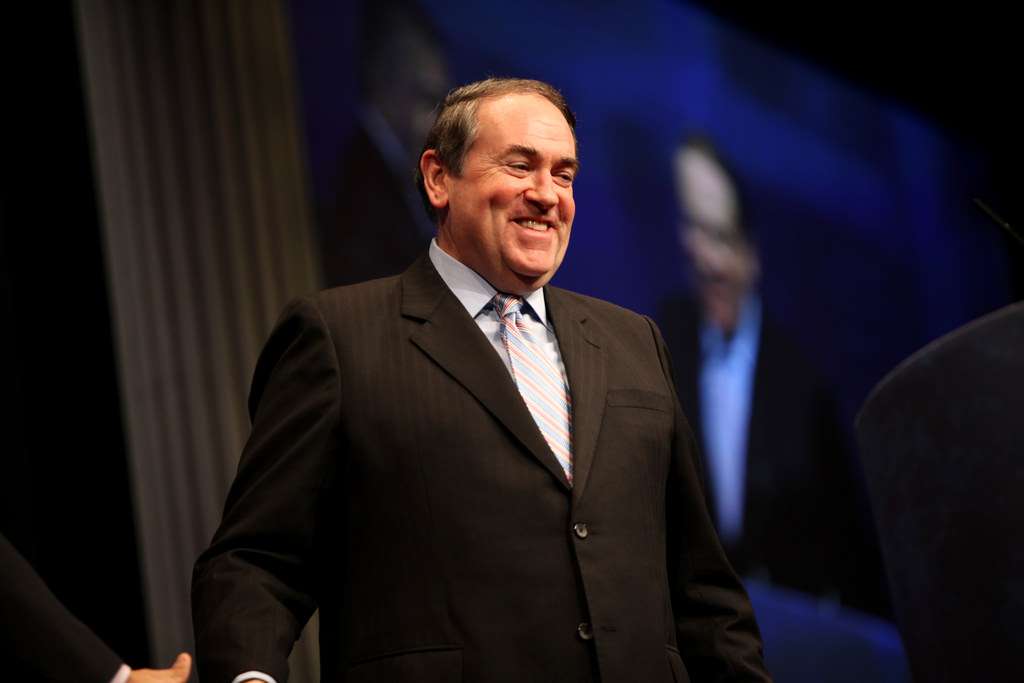Why You Shouldn't Take Mike Huckabee's Presidential Campaign Seriously

As former Arkansas Gov. Mike Huckabee meanders into the Republican party's presidential primary race, you may see occasional calls to take him seriously as a candidate.
Here's a better idea: Let's not.
Huckabee is affable and likeable, and it's at least conceivable that he could make a strong showing in an early contest or two next year.
But given the strength and breadth of the GOP field this round, he has essentially no real chance at winning the GOP nomination. More than that, he's proving himself unwilling to grapple with some of the most fundamental federal policy issues.
In particular, Huckabee has taken to arguing that Medicare and Social Security, the nation's two biggest entitlements and two biggest drivers of the long-term debt, don't need to be reformed. Last month he attacked fellow GOP no-hoper, New Jersey Gov. Chris Christie, for his recent proposal to means test entitlements and raise the retirement age, and said that he wouldn't support GOP Rep. Paul Ryan's Medicare reform plan.
Part of what's telling here is that neither of these proposals are intended to blow up the big entitlements; instead, they're plans to slowly transition them into systems that are fiscally sustainable, or at least closer than they are now. Yet for Huckabee, even that's too much.
His reasoning for opposing the changes, meanwhile, is pretty much pure pandering. At a stop in South Carolina over the weekend, he reiterated his opposition to reforming entitlements, arguing that doing so would amount to a betrayal of taxpayers, reports Dave Weigel of Bloomberg Politics:
As a candidate, Huckabee is attempting to bring the conversation around to economic populism. At every stop of his tour, he made the standard Republican attack on Washington, but added a twist. Other Republicans would cut away at "entitlements." He would not.
"I remember the first time I got a paycheck, at age 14," said Huckabee in Urbandale. "I had a job at the radio station. I got paid -- a buck-twenty-five an hour, minimum wage. I was worth every bit of it, too. A buck-twenty-five an hour, however many hours I worked, so I added it up -- and then I got the check, and there was something called FIC taken out."
Huckabee's crowd, a mixture of young parents and head-nodding retirees, laughed as he re-enacted the conversation with his boss over FICA, the Federal Insurance Contributions Act, a.k.a. the Social Security tax.
"I said, 'Oh my gosh, I'm 14 years old, you really think I need that?' He said, 'Well, someday, someday it will be there for you.' Folks, I'm a whole lot closer to that someday than I was! It is a foolish thing for the government to involuntarily confiscate money from your pockets and paychecks for 50 years, and then suddenly tell you, oh, we were just kidding." It was a sidelong reference to some of his Republican rivals, who are calling for major cuts in the Social Security program.
Huckabee has made this argument elsewhere, in various forms, but it doesn't hold up.
For one thing, it's not as if any of Huckabee's fellow Republicans have suggested cutting off Social Security or Medicare. The changes that have been proposed are gradual, taking years to kick in, and while they would alter how those programs and their benefits are structured, they wouldn't simply take benefits away
For another, the combined Social Security and Medicare benefits that an average person will get far exceed what they pay into the system. So the idea that they are owed the benefits the system currently offers by virtue of having paid in doesn't really work either.
Nor is it as if Social Security is some absolute that will simply continue to pay out if not changed. At some point in the next two decades, the program, on its current trajectory, will become unable to pay out all of its obligations. At that point, beneficiaries will only get about three quarters of what they're owed. Medicare too has a looming unfunded liability.
Huckabee's preferred solution is, as far as I can tell, to do nothing—not to reform the programs in any way, and not even to raise taxes to attempt to keep them afloat, nor even to acknowledge that there's a problem in need of addressing. In other words, he doesn't take the fiscal challenges posed entitlements, perhaps the biggest long-term challenge to the federal budget, seriously. Anyone who does should probably treat his campaign similarly.


Show Comments (37)